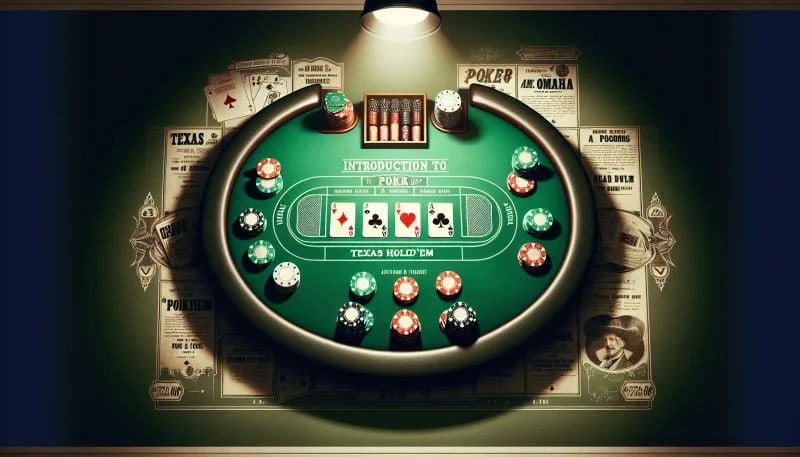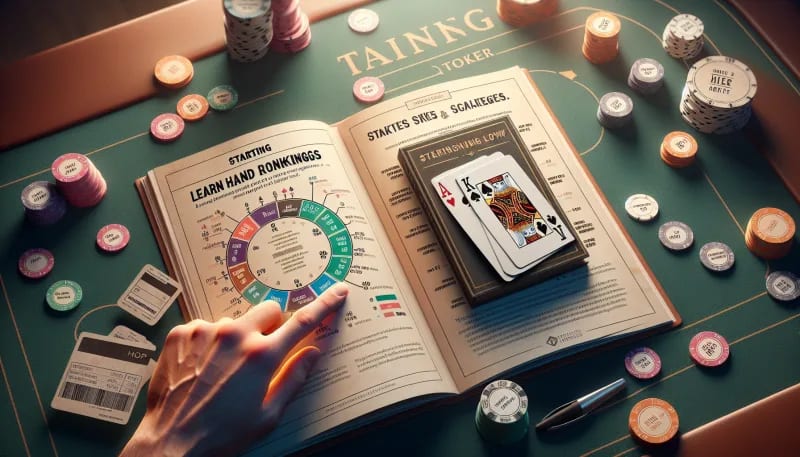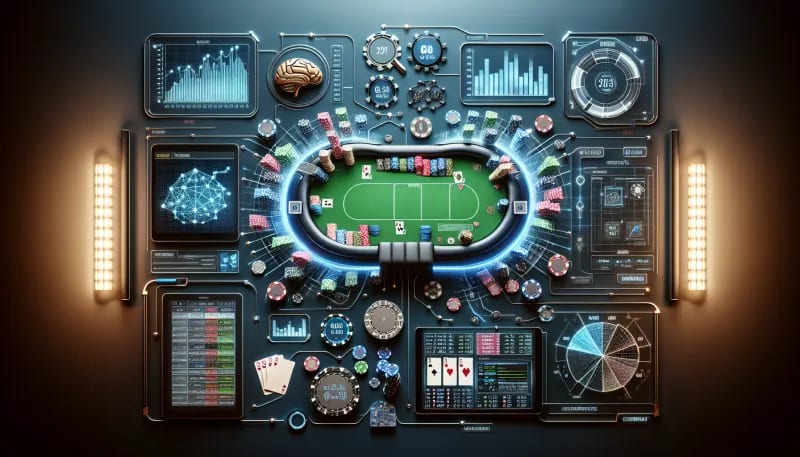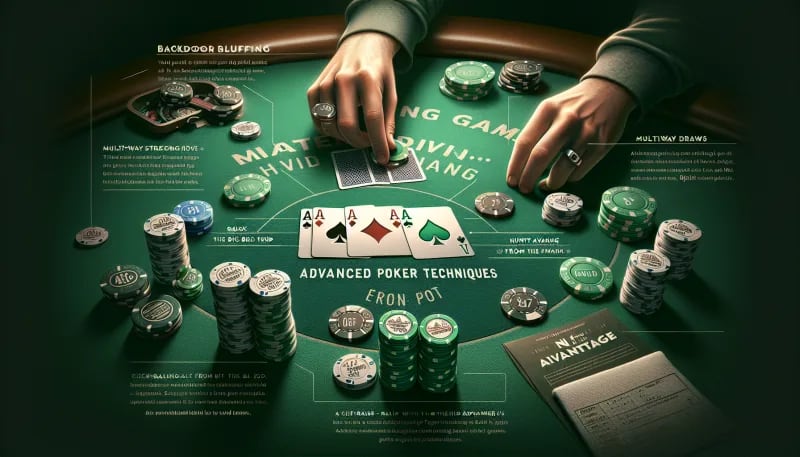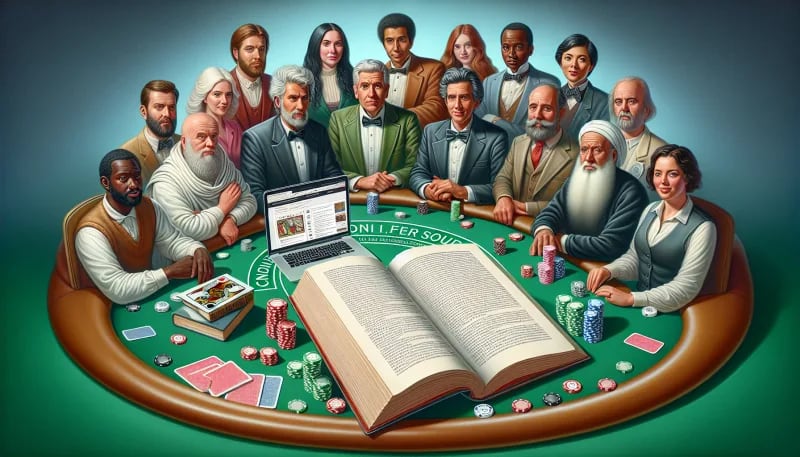Best Poker Tips: Mastering the Game from Beginner to Pro
Introduction to Poker
Let's dive right in, shall we? Poker is one of those games that seems to have been around since the dawn of card-playing civilization. Where did it come from? Some experts claim it's a descendant of a Persian game called "As Nas." Others insist it evolved from a French game called "Poque." But really, who's to say? Besides historians, but when have they ever agreed on anything?
Now, you’ve got your myriad variations of poker, each with its own little quirks and charm. The most popular? Hands down, it’s Texas Hold'em, the bread and butter of poker nights and the star of the World Series of Poker. Then comes Omaha, the Hold'em cousin that deals you a bountiful four cards and says, "Good luck, figure it out." And those are just the tip of the poker iceberg.
Here’s the obligatory list to give you the lay of the land:
- Texas Hold'em: The one everybody seems to know.
- Omaha: Because four cards are more fun than two, right?
- Seven-Card Stud: For those who find community cards unsavory.
- Razz: Because who doesn’t like going for the lowest hand possible?
- Five Card Draw: A good ol' classic, like your grandpa's poker game.
All jokes aside, poker's not just about the luck of the draw. There's a hefty dollop of strategy and skill simmered into the pot. That’s what makes it so addicting. Think you can bluff your way to victory? Maybe. But can you calculate odds, read players, and fold with dignity? That, my friend, is where the real game lies.
So how do you balance the trio of skill, strategy, and the whims of Lady Luck? It’s a delicate dance, like trying to pat your head and rub your belly while standing on a balance board. Challenging, but that's the thrill of it!
Now that we’ve stirred your curiosity with a whirlwind tour through the poker universe, are you ready to shuffle up and deal with the basics? Stick around for the next part: 'Basic Poker Tips for Beginners'. Surely, you wouldn't want to dive into the shark-infested waters without a life vest, would you?
Basic Poker Tips for Beginners
Following the 'Introduction to Poker', you're probably eager to dive into the action. Hold your horses! Before you dream of high-stakes glory, let's talk basics.
First off, remember hand rankings? If not, make them your new bedtime story. Knowing a Royal Flush beats a Full House is Day 1 stuff. But it's crucial, like knowing not to eat yellow snow.
And the rules? Skip them at your peril. It's like entering a demolition derby thinking you're in a go-kart race. Spoiler: It won't end well.
Positions, friends, are the chess moves of poker. The late position is king, giving you the power to make informed decisions like a boss. In early position? You're basically navigating a minefield in the dark.
Now, about strategy - start low. Jumping into big stakes is like trying to run before you can crawl, and just as embarrassing when you trip. Low stakes let you grasp strategy without selling your kidneys.
But where to start? Seek out the best games for your skill level and preference. You wouldn't race a monster truck at NASCAR, right?
Let's talk play style. Tight but aggressive is the way to go. Picture a coiled snake, not a yapping chihuahua. You wait for premium hands, then strike with all your might.
Here are some quick bullets:
- Learn the hand rankings. No excuses.
- Know the rules. You can’t bend them if you don't know them.
- Start at low stakes. Protect your bankroll and your dignity.
- Find a game that suits you. Square pegs and round holes - remember?
- Play tight but aggressive. Scare them with your patience, then with your chips.
Wonder why you should mind your position? Can't a great hand win from anywhere? Sure, and I've got a magic bean stock to sell you.
Before you level up to 'Advanced Strategies for Experienced Players', make sure you've got the basics down pat. Otherwise, you're bringing a knife to a gunfight – and not even a sharp one.
Advanced Strategies for Experienced Players
So, you've mastered the basics we covered earlier, huh? Now, brace yourself; it's time to dive into the nitty-gritty. Remember when you thought poker was just about reading souls and wearing sunglasses indoors? Well, buckle up, because we're about to make Rain Man look like he was playing Go Fish.
First off, let's talk databases. If you're not combing through your hand histories with the meticulousness of a cat burglar casing a joint, are you even trying? Here's the deal:
- Analyze your play and spot patterns (good and bad, folks).
- Look at population tendencies. Yes, that means understanding what the herd is doing. If everyone's zigging, maybe it's time to zag?
Next, there's this high-tech magic called GTO solvers. This isn't your grandma's poker advice. GTO, or Game Theory Optimal play, can make your head spin faster than a roulette wheel with its complexities. But, pros:
- Use solvers to craft unexploitable strategies.
- Employ them to understand ideal play in every conceivable situation. (Yeah, like you're some poker-playing cyborg.)
And don't get me started on equity calculators – these bad boys are powerhouses. They're not just about who's ahead, it's layer upon layer, like some Inception-level poker math:
- Calculate your hand's equity against a range of hands.
- Explore various flop, turn, and river scenarios. (Because why not make things extra complicated?)
Now, onto what might sound like homework: Learning default preflop and postflop strategies for every. single. spot. Tedious? Maybe. Crucial? Absolutely.
- Do you have a plan for when you're out of position with a middling hand on the button?
- How about when the nit in seat 3 re-raises your cut-off open?
And here's a kicker – rake and game-quality analysis. Because it's not just about playing, it's about playing smart. So ask yourself:
- Are you selecting the most profitable games?
- Is the rake eating up your soul along with your profits?
Ha! Who knew poker was as much about spreadsheets and reports as it was about bluffs and tells? Stick around, though; up next, in 'Practical Poker Tips', we're going to bring you back to earth – because, believe it or not, this game is still played by humans.
Practical Poker Tips
After delving into the labyrinthine world of advanced strategies, you're probably thinking you're ready to take on the poker titans. Hold your horses, though; I've got some practical juice to keep you from going broke faster than a flush beats a straight.
Positive mindset? I hear you scoff, but listen, this isn't just fluffy feel-good advice. It's the armor against tilt, the infamous bankroll killer. Staying upbeat means you'll make sound decisions, not emotional hail Marys that leave you questioning your life choices.
Multi-table play is like juggling chainsaws. Exhilarating, but one misstep and you're in a world of hurt. Get this: understand the dynamics or prepare to bleed chips. Focus on table position, player tendencies, and your stamina—no point playing eight tables if your attention span rivals that of a goldfish.
Now, bankroll management isn't just for fresh-faced newbies. Are you eyeballing that high-stakes table like it's a Vegas buffet? Easy, tiger. Stick to stakes where a bad beat doesn't send you rummaging through couch cushions. Always play within your means.
Curiosity might kill cats, but in poker, it fattens wallets. Exploring new variants can plug holes in your game faster than you can say "Pot-Limit Omaha". Each format sharpens different skills, so why not become the Swiss Army knife of poker players?
Invest in a coach. No, seriously. Even Roger Federer has one. And consider this: if neural networks and tree-building software sound more sci-fi than poker strategy, you're leaving chips on the table. These tools are like your personal poker Yoda—minus the backward talk.
Leaving you with that nugget, prepare for the next section, 'Specific Advanced Poker Techniques', where we get down to the tactical nitty-gritty. Would you rather sharpen your game or keep wondering why your chip stack looks so lonely?
Specific Advanced Poker Techniques
Following up on our 'Practical Poker Tips,' let’s wade into the deep end, shall we? Advanced techniques in poker are like a secret handshake. Once you know them, doors open—or at least, that’s what we like to tell ourselves. Let's dive in.
Ever looked at a non-made hand with backdoor flush potential and thought, "Could I bluff with this?" You betcha. Bluffing with backdoor draws isn’t just stylish; it's about utilizing potential. But here’s the catch: bluffing is an art, not a science. Get it wrong, and you might as well confess your sins to the table.
Now, let’s talk about being in the big blind and check-raising like it’s your job. Why? Well, it screams strength. But honestly, it also says, "I’ve had too many chips for too long, and it’s starting to feel like a burden." Check-raising from this position exploits the perceived passivity of blinds and can turn the tide of power in your favor.
Pocket pairs and suited connectors in multiway pots: they're like the quiet kids in class. Unassuming, yet they often have the most potential to surprise you. In multiway chaos, they’re camouflaged superheroes. And when they hit, oh boy, do they hit hard. But remember, multiway pots are a circus. Are you the ringmaster or the clown?
Check-raising with draws after calling a 3-bet; sounds tricky, right? Well, it’s like telling a bold-faced lie with a smile. It's all about conviction. If done right, you can go from zero to hero. But blink, and you’ll be the protagonist in a tragedy.
Overbetting with the 'nut advantage' is pure bravado. Think about it. Why just bet when you can overbet? It’s like using a sledgehammer when a simple hammer will do. Sure, you might crack the safe, but you could also bring down the whole vault on your head.
Remember, these techniques are powerful, but with great power comes great opportunity to make a fool of yourself. Who knew poker could be such an ego trip?
Onto 'Psychological Aspects of Poker' – because what’s a skilful bluff without a poker face to match?
Psychological Aspects of Poker
After mastering those advanced poker techniques, you've come to realize that the battle isn't just on the felt—it's also in your head. I mean, let's face it, if poker were only about the cards, you'd likely have a bracelet or two by now, right? But no, it's about reading your opponents like a trashy novel at the airport; you're always looking for that tell, that little twitch. Oh, and don't get me started on pressure. It's like being asked to defuse a bomb when you can't even remember which wire is which.
So how do we deal with this psychological minefield?
- Reading opponents: Sure, you've got your human lie detectors claiming they can spot a bluff a mile away. Really, it's about patterns and frequency. You can't tell me you've never stared into a soul to see if they're holding the nuts. It's like trying to download their thoughts through intense eye contact.
- Handling pressure: Playing a big pot can feel like you're trying to solve advanced calculus while someone's throwing popcorn at you. But you learn to love the popcorn, right?
- Impact of 'tilt': Oh boy, don't I know about tilt. It's the emotional equivalent of slipping on a banana peel in front of your crush. Tilt can turn even the most stoic poker face into a neon sign that reads "I'm losing it!" How many times have we seen someone's chips evaporate because they got a little too... spicy?
- Emotional control: It's the poker player's superpower. The ability to keep your cool when you'd rather flip the table? Priceless. Because nothing says "I've got this" like folding a bad hand with the same Zen-like calm you'd use to order a latte with extra foam.
Maintaining mental resilience is downright essential. It's the secret sauce, the mojo, the... whatever magic metaphor you prefer. So, can psychological strategies really influence your play? Is a deck of cards rectangular?
Just remember, while you’re psyching out your opponent, somewhere out there is a person training to read you. And they're probably reading this same article... Useful, right?
Up next, you'll wrap up with some Conclusion and Further Resources where you can find more ways to mess with your opponents' heads and keep yours screwed on right.
Conclusion and Further Resources
Well, folks, we've danced with the psychological boogeyman lurking in the poker shadows. Now, let's stash some aces up your sleeve for the never-ending poker conquest. Remember, the mind game never stops. Even if you meditate like a monk or bluff like Brando, there's always room to up the ante.
First off, take a load off. Seriously, did you think you could just wing it and become the next poker czar? I didn't think so. But don't fold your dreams just yet. Your poker enlightenment is tucked away in a few key resources:
- Books: Crack open 'The Theory of Poker' by David Sklansky for a mental workout. Or 'The Mental Game of Poker' by Jared Tendler if your brain tends to short-circuit under pressure.
- Online Courses: Got an internet connection? Dive into the courses at Upswing Poker or Run It Once. They'll turn those question marks above your head into $$ signs.
- Communities: Lonely at the top? Join Two Plus Two Forums or Reddit’s r/poker. Share your bad beat stories where everyone can feel your pain.
But let's get real for a second. Can reading and chatting really make you a poker Yoda? Nope. It's all about the grind. Hours upon hours hunched over green felt, making and breaking fortunes. Keep those peepers peeled for bluffs and tells—it's the only gym membership your poker face needs.
Now, since there’s no magical river card coming to save you, practice is your only lifeline. Shuffle up and deal, day after day. Remember, nobody was born holding pocket aces. Not even Doyle Brunson.
And hey, just for kicks, when you've finally bluffed your dog out of his treats—maybe, just maybe, you'll be ready for the real deal. Until then, laugh at the tilt, the suck-outs, and the river rats. After all, if you can't smile at a runner-runner beating your set, are you even playing poker?
So what are you waiting for? Go forth and conquer, one flop at a time. And who knows, with enough practice, you might just become the shark that other fish tell scary stories about. Good luck!

